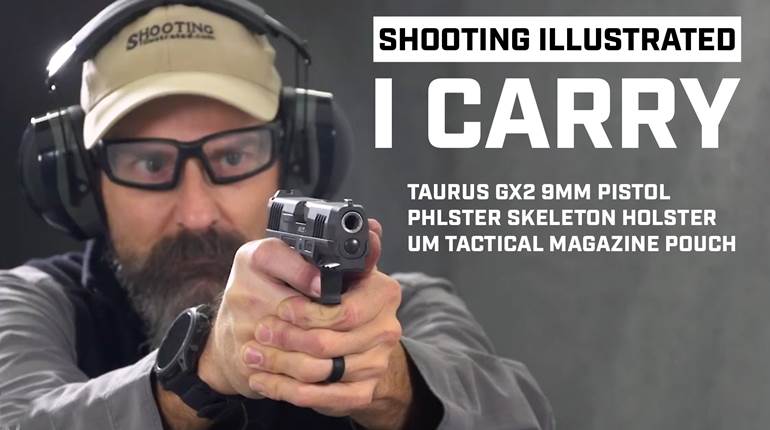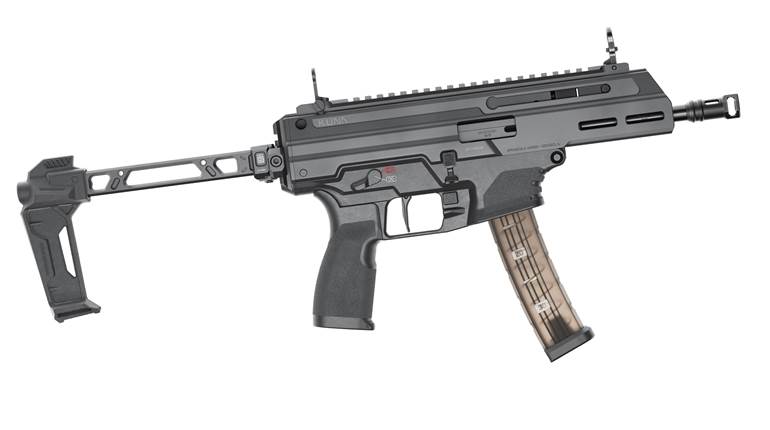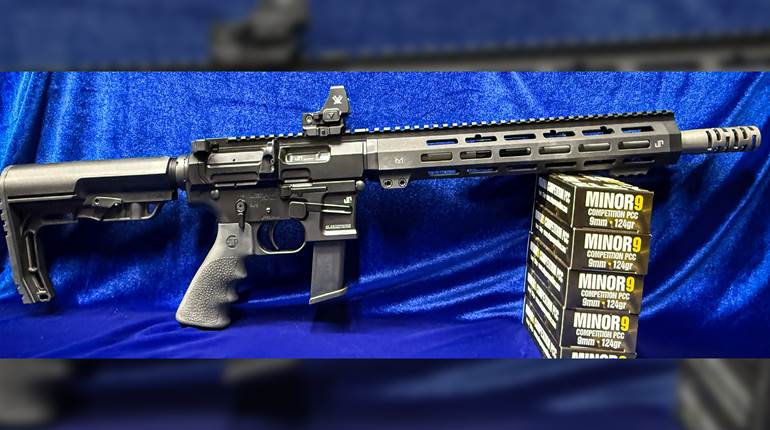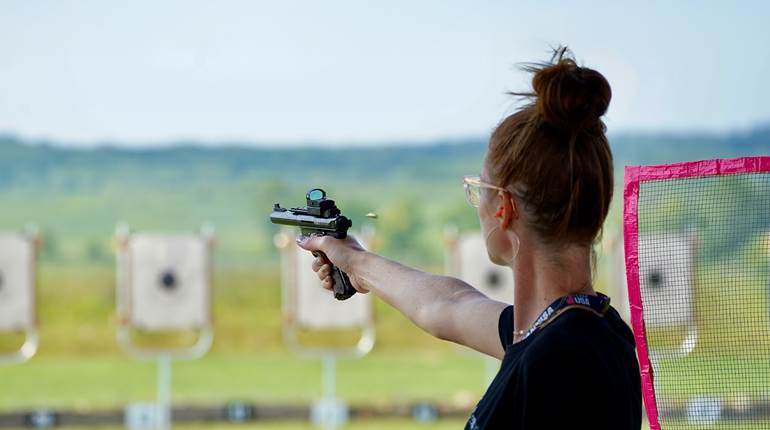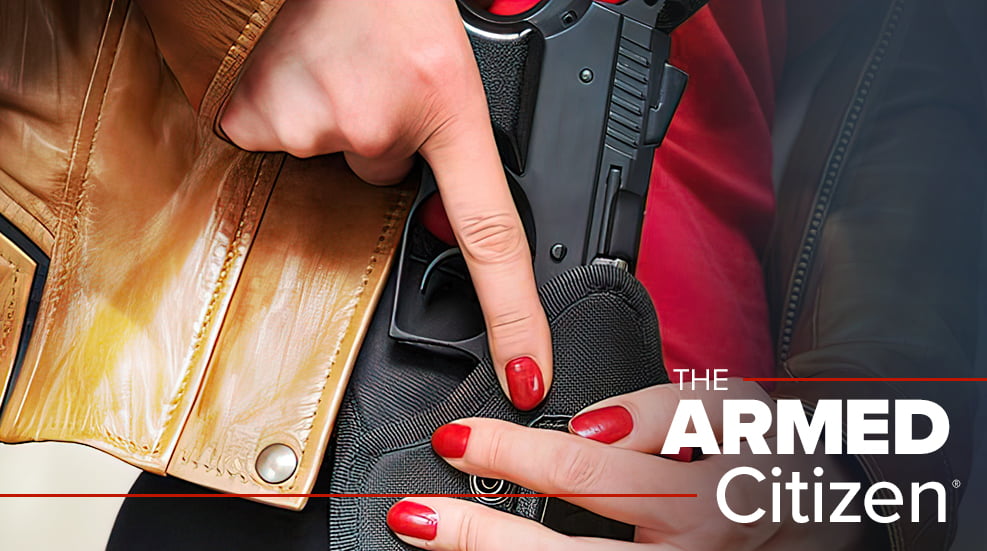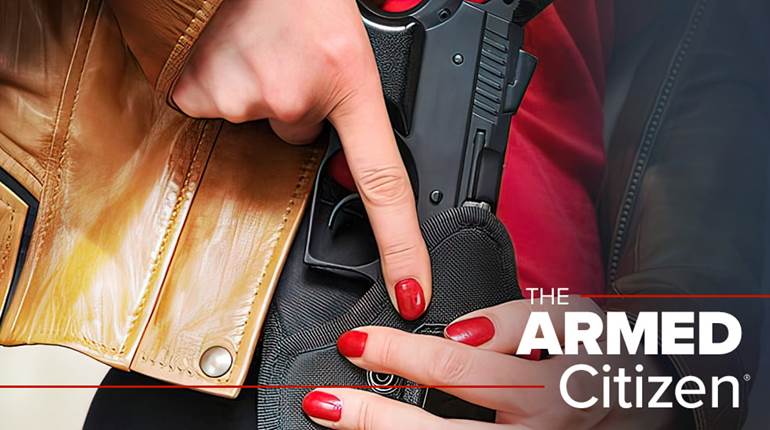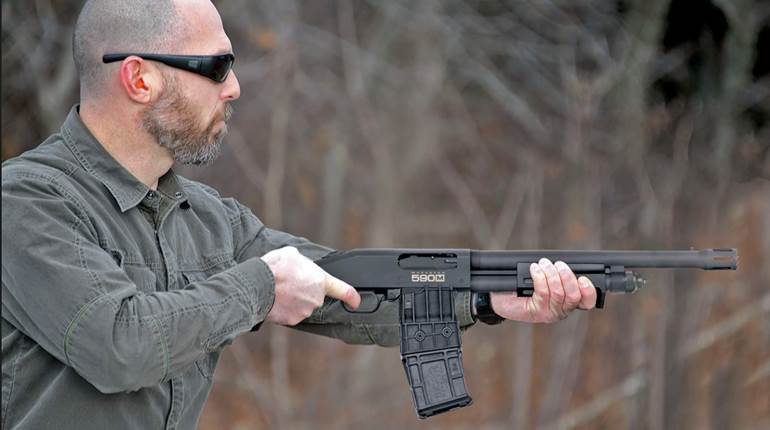
Despite its decades-long popularity in military and law enforcement circles, shooters in the U.S. have struggled to get their hands on genuine Heckler & Koch MP5 designs, even in semi-automatic-only configuration. For years, the market’s relied on clones, but all that changed with the introduction of the SP5.
Made on the same assembly line in Orbendorf, Germany, as the select-fire MP5 submachine gun, the H&K SP5 brings the genuine article to the U.S. consumers, albeit in a semi-automatic, large-format pistol package. Though American Rifleman has reviewed the SP5 previously, it’s a design that warrants a closer look. In my mind, there are five reasons why the SP5 is a great addition to the U.S. firearm market.
It Just Works.
The select-fire MP5 and its semi-automatic SP5 counterpart are one of those designs that just plain works. Sure, the design is iconic for its association with myriad SWAT and hostage rescue teams, along with special operations around the world. But beyond that, the H&K roller-delay-action platforms seem to bring out very good results for anyone behind them.
Most users tend to not only shoot the little roller 9 mm well, but thoroughly enjoy doing it as well. Even with the proliferation of 9 mm pistol-caliber carbines on the market, the SP5’s roller-delay-blowback action is still one of the sweetest shooting, low recoil platforms out there.
Bungee Stabilization Works.
The SP5 ships with an adjustable single-point bungee sling which connects to a swivel at the pistol’s rear by a ‘mash hook’. Some special operations and SWAT teams in the MP5’s heyday were known to use a single point sling in lieu of a retracted stock, so the bungee plays on this nostalgic connection. Yet many shooters might doubt how useful it really is.
I was equally curious and hadn’t spent any time training on this particular technique so was happy to check it out. The short answer is it worked surprisingly well. I found it worked better for me with the sling looped under my right arm (the opposite of my preference for a two-point sling on an AR-15) and adjusted so that the pistol was about at two-thirds of full extension.
I had enough tension on the sling to just lightly begin to stretch the bungee with the pistol stabilized. With this I was able to quickly squeeze accuracy and speed out of the SP5, that are at the outer edge of my capabilities with traditional pistols.

For example, with the bungee in place, I was able to run the plate rack at 10 yds. On my third attempt, while still acclimating to the recoil cycle and overall ‘feel’, post a time within hundredths of a second of my personal bests on some pistol platforms. With the pistol slung and with both hands relaxed and steadying it, I was able to react to a timer and fire six rounds into the “A” zone of a 7-yd. USPSA target in a second and a half.
I also used the bungee to “stretch” the SP5 out past traditional pistol distances. It hit 8” steel plates easily at 70 yds. and the sling aided in landing hits on a reduced Defense Targets steel silhouette shot for shot at 100 yds. As good as the bungee works, there is no doubt that the SB Tactical folding brace shown in the photos is the best option to equip on the SP5.
The brace added another portion of both speed and accuracy to the HK, allowing for even more impressive levels of controllability. However, the bungee was a welcome surprise, and I’d rate it as a solid option for more experienced shooters and perhaps not so much for those with less experience. As a comparison, the SP5 without a brace or bungee loses much of its edge over traditional pistols and in some hands might even stray toward being more of a novelty than a defensive tool.
The Safety Is Better.
One of the few complaints about the MP5 family has been about the ergonomics of the safety. One of my old units had the SOP that the safety was disengaged as soon as a user made entry into a hot zone and remained off until the area was fully clear. This was not an uncommon SOP, because the MP5 safety was a little cumbersome and slow for many.

The new SP5 has a greatly improved the bilateral safety. I found the improved shape of the safety to rest easily under my thumb on safe, while also being easy to slide into the fire position. Returning the pistol to safe was equally dexterous.
The AR-15 platform’s safety is likely the gold standard for ease of use, but the new H&K unit is rather nice. In fact, I had purchased the aftermarket Magpul ESK selector before the SP5’s arrival, but was happy to learn that no upgrade was needed. With the new safety, a user would be wise to ditch the old SOP and use the safety in the same manner as any other modern platform.
The Ballistics Are .357 Mag In Disguise.
The SP5’s 8” barrel provides a ballistic boost to the 9 mm Luger cartridge. Hotter loads gained 200 f.p.s. or more in velocity from the standard 4” long service pistol barrels. This is more pronounced with mid-weight bullets and +P loadings. I fired Federal’s new standard pressure Punch 124-gr. defensive JHP load, and it rocketed out near .357 Mag. speeds at 1,350 f.p.s.

Black Hills Ammunition 124-gr. +P JHP loads clocked in at 1,430 f.p.s. This is indistinguishable from the legendary .357 Mag. 125-gr. JHP load when fired from a service revolver. The SP5 is putting so much more ‘mustard’ onto the bullet that one may actually need to consider the bullet’s construction. If I to use the SP5 for defense, I would lean toward using bonded jacketed hollow points or designs that have a reputation for tough construction.
The Trigger Works Well (Surprisingly).
There are few other firearms with such a stellar reputation while also equipped with a lackluster trigger as is the MP5 design, and the stock SP5 trigger is no different. The SP5 trigger movement includes a long take up of variable, gritty weight, followed by a creepy resistance and a gravelly hitch before a vague break. There is also some overtravel for good measure.

The trigger on paper is the very definition of a poor trigger, yet most users shoot the platform rather well and with no complaint. In fact, more than a few users actually like the safety margin the long take-up affords. It is a question for the ages that challenges what we think we know about triggers. At the recent Class III Jamboree, an annual fundraiser shooting event for veteran’s charities, the sponsors had a wide array of many of the classic select-fire submachine guns and assault rifles.
Far and away, the most popular rental was the venerable MP5. I was shooting the new SP5 at about the same time and could absolutely understand the draw. Whether simply to enjoy a civilian-legal analog to the full-automatic classic or for more practical defensive usage, the SP5 is a great large-pistol format take on the original.












